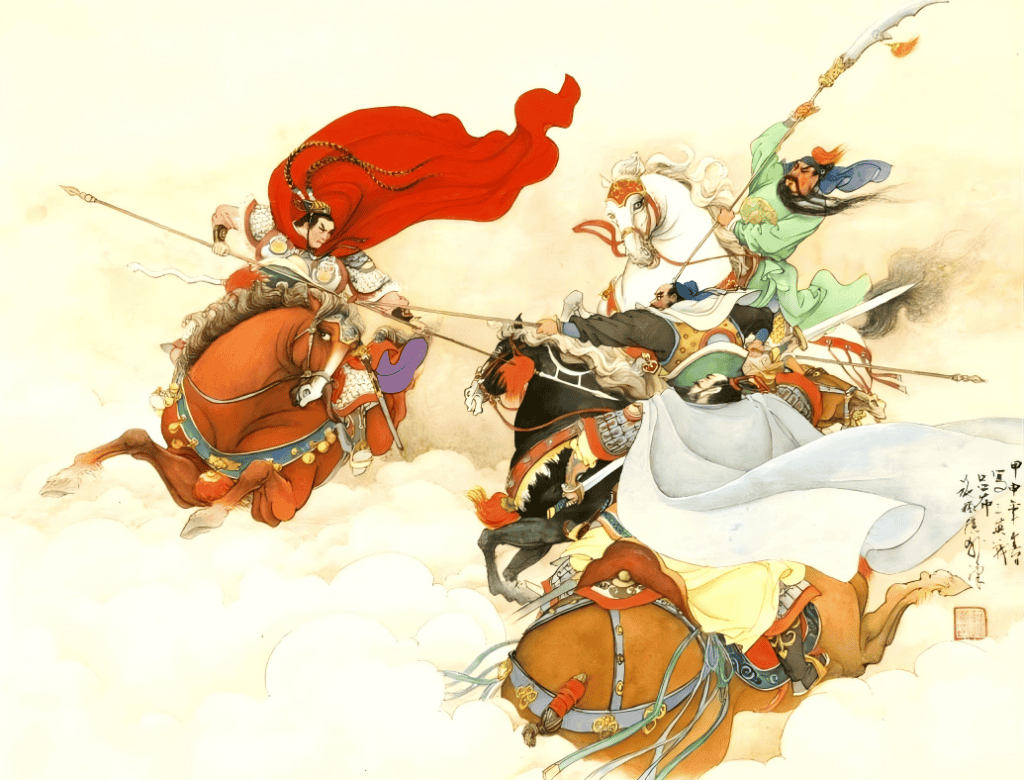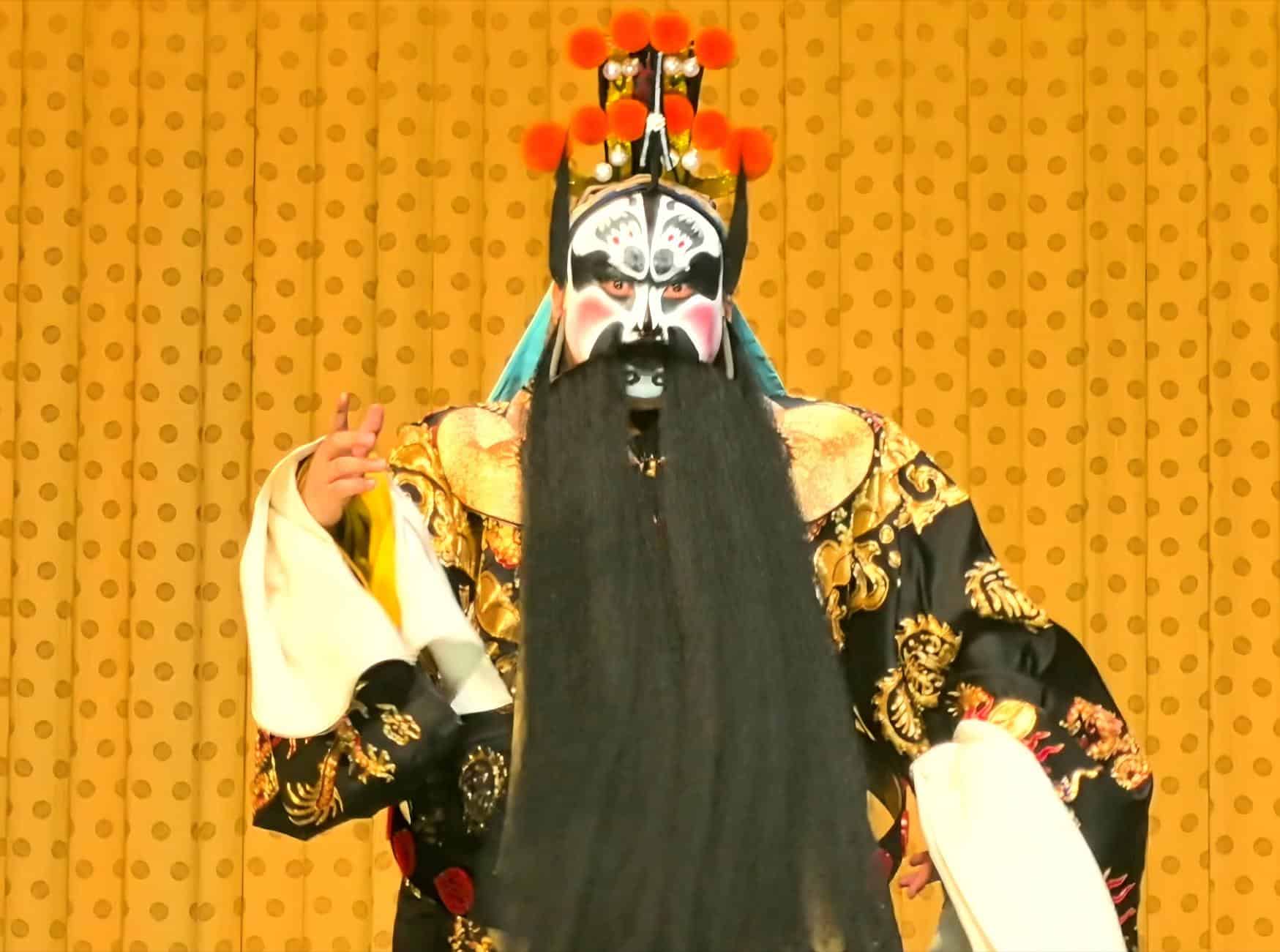‘老老做戏唔知挂须’
‘老老做戏晤知挂须’literally means that an experienced Teochew Opera actor went on stage to play Zhang Fei but forgot to put on a fake beard.
Usually, Teochew is often used to:
Expressing mistakes made in a hurry. But some people also use this phrase to defend their mistakes.
‘老老做戏’means an experienced actor。’唔知’means forget.‘挂须’ means wearing a fake beard.
Practice the sentence in Teochew as the audio below:
Zhang Fei’s appearance
Zhang Fei, a famous general of Shu during the Three Kingdoms period, was also one of Liu Bei’s main confidants. He was known as “the enemy of ten thousand men” together with Guan Yu.
Zhang Fei’s appearance in “Romance of the Three Kingdoms”: Eight feet tall, leopard head, round eyes, swallow chin and tiger beard, voice like thunder, momentum like a galloping horse
Teochew opera actors’ meal time
In the past, Teochew opera was mostly performed as a square play. Villages, social groups and wealthy families would invite opera troupes to perform all night long to liven up the atmosphere when they thanked the gods or held other happy or miscellaneous events. One can imagine the hardships and sufferings of the actors.
‘Zhang Fei’ fell into sleep
Once, a troupe performed until midnight as usual, and performed the martial arts play “Three Heroes Fighting Lü Bu” (a plot from the Romance of the Three Kingdoms).
During the performance, the night porridge was cooked. The rules of the play at that time were that whoever was free would eat first. The experienced actor who played Zhang Fei came to eat as soon as he was off the stage, and took off his fake beard to make it easier to eat. After eating, it was not his turn to go on stage, so he dozed off and fell asleep while sitting.

‘Zhang Fei’ forgot his beard
After a while, he was pushed awake – it was his turn to go on stage according to the plot. I don’t know if he was still sleepy or too nervous, but he went on stage without a beard. After he came on stage, he wiped his chin according to the stage action, only to find that he had forgotten to put on his beard. At this time, the old actor who played Lü Bu also discovered his omission and was shocked. What should he do?
‘Zhang Yang‘ saved ‘Zhang Fei’
There is a proverb in opera: Solving unexpected problems on the stage is as urgent as putting out a fire. Besides, if the play fails, the troupe owner will blame him, and “Lü Bu” will also be punished.
He thought of a clever idea in a hurry, and heard “Lü Bu” shouting: “The general will not kill unknown people. Who are you? Tell me your name quickly.” “Zhang Fei” understood what he meant and quickly grabbed the straw to save the “stage”.
Then he made a feint and said: “I am Zhang Fei’s younger brother Zhang Yang.” “Lü Bu” knew that he had taken over the play and stopped while he was ahead.
Then he said, “Pah,” and said, “I’ll spare your lives, but you can quickly call Zhang Fei to come and die!” Zhang Fei was overjoyed when he heard this, and took the opportunity to go down the stage to hang his beard.
‘老老做戏唔知挂须’&’张样’
Despite this cover-up, the plot was able to continue. But the audience was not all idiots, and there was no such plot in the novel “Romance of the Three Kingdoms”? Those “old drama fans” and sharp-eyed people finally saw the flaw.
Aside from the ridicule, the “folk story” of ‘老老做戏唔知挂须’ became widely circulated.
By the way, ever since this “folk allusion” came into being, trendy people have jokingly called the villain who is used to pretending to be powerful and acting big as Zhang Fei’s younger brother – ‘张样'(“Zhang Yang”).


Leave a Reply